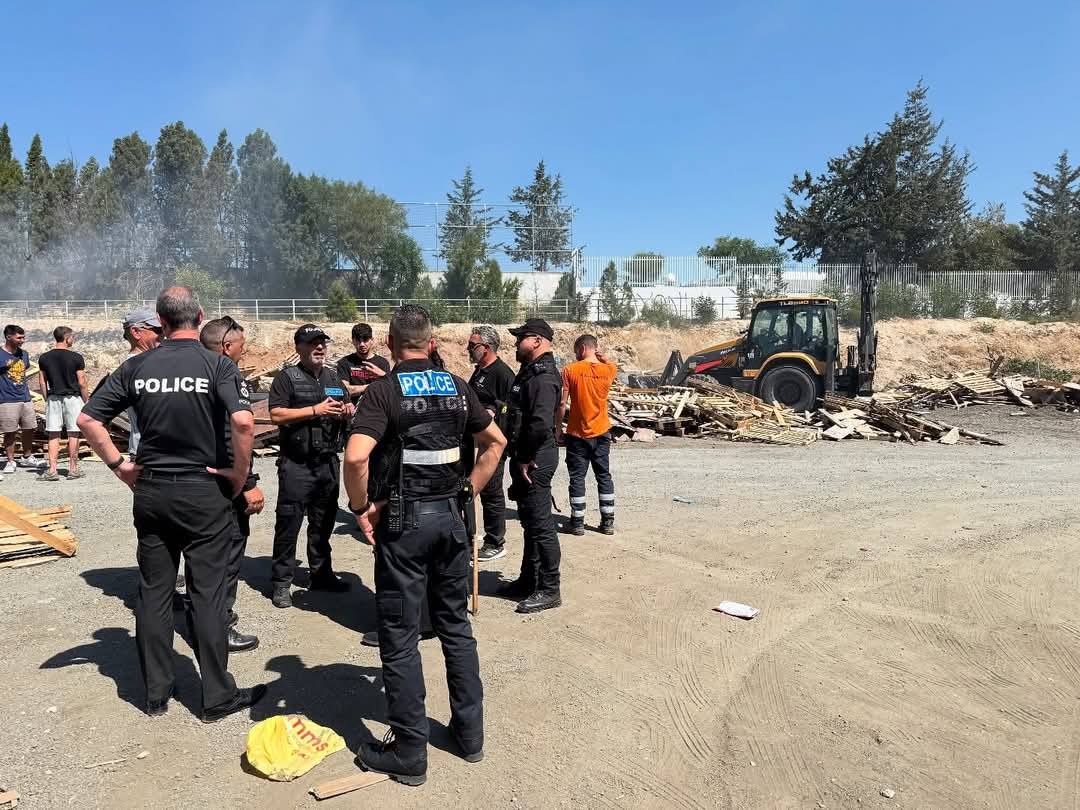The House legal committee on Tuesday denied responsibility for the various crimes surrounding Easter bonfires, known as lambradjies, and other explosives over the weekend, insisting that the bill the government had brought before it two weeks ago with the aim of dealing with the matter was inadequate.
The government had made a last-ditch attempt on April 9 to get a bill regulating lambradjies through the House committee ahead of the final parliamentary plenary session before Easter took place on April 10, but the committee failed to acquiesce at the time.
Now, with some quarters reportedly pointing the finger at the committee following a weekend of mayhem on Cyprus’ streets, the committee has insisted that the bill put forward by the government was not ready to be passed into law.
The committee argued that the bill “was not commonly accepted by stakeholders”, and thus “essentially shifted the burden of responsibility to the legislature to decide on its most crucial point”.
This “most crucial point”, it added, was the matter of when the bill would be implemented, with the government hoping that the bill would be passed on April 10 and then implemented with immediate effect.
However, local authorities, which, if the bill had passed, would have been tasked with vetting and approving applications to light lambradjies, had asked that the bill take effect from next year to allow themselves and the public to be adequately informed and ensure “no confusion” over the matter.
In light of this, the committee said on Tuesday, “it was absolutely impossible for [the bill] to be implemented for this Easter, which was only one week after the session in question”.
Meanwhile, the Union of Cyprus municipalities said it is “unacceptable” for the blame to be placed on local authorities for the delay in the bill’s passing and the weekend’s wave of crime.
“The passage of any new regulation … has absolutely no relation to the phenomenon of crime and the dangerous situation in recent years around the self-proclaimed lambradjies,” it added.
It also made reference to the death of 22-year-old Daniel Cristian Fratilescu, who was killed while constructing a lambradjia in the Nicosia suburb of Strovolos.
“Taking into account the tragic events and the undeniable connection of delinquent behaviours with the custom of the lamradjia as it has developed in recent years, we consider it necessary to immediately review and possibly terminate the custom of the lambradjies in its current form,” the union said.
Committee deputy chairwoman and Disy MP Fotini Tsiridou had been bemused earlier in the month when the bill was put before parliament.
“The directive was to agree on the text and then submit it to parliament. A text came, the various parties do not agree, and you do not agree with when it will enter into force. We cannot open a court here and hear both sides. The text should not have come like this, it should have been agreed upon and then submitted,” she said.
She added that the burden for resolving such disagreements “cannot fall on parliament”.
In addition to the date on which the law would come into force, local authorities and the central government also disagreed over whether the police, the fire brigade and the environment department should all be required to give permission for a lambradjia to be lit.
Justice Minister Marios Hartsiotis told the committee at the time that he saw such a provision as unnecessary, saying “we believe that if this provision were to be adopted, it would turn state services into the decision-making authority for the organisation of lambradjies”.
The bill had been amended after MPs had been less than impressed by the government’s previous version which had been presented to the committee last month.







Click here to change your cookie preferences